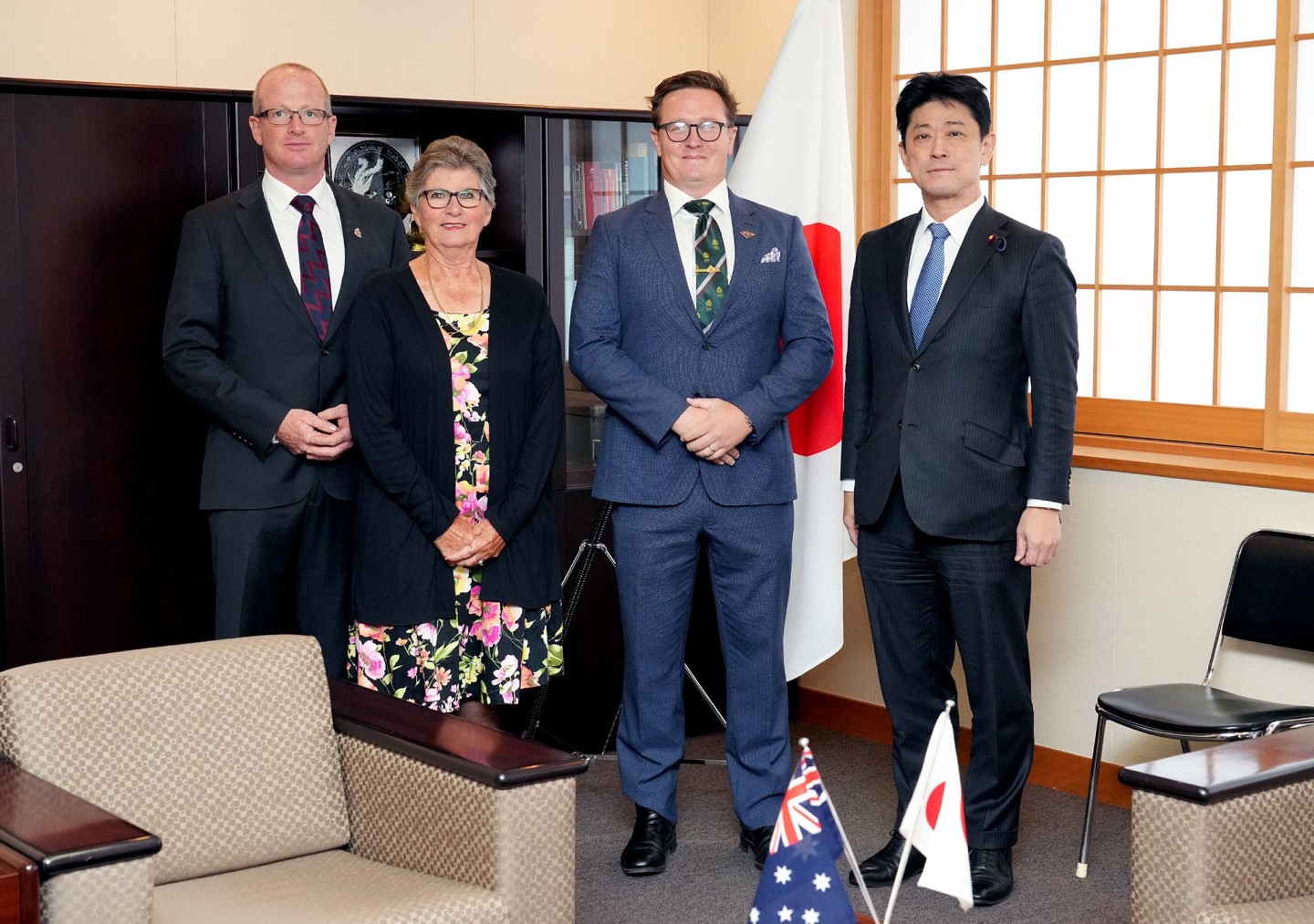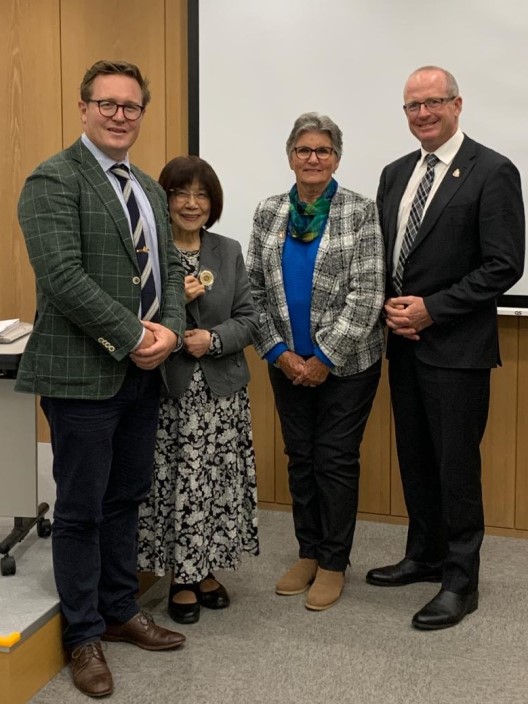A journey of healing for descendants of Australian POWs in Japan

A message from RSL Australia
As RSL Deputy National President Duncan Anderson lay a wreath in remembrance at the Yokohama Commonwealth War Cemetery in Tokyo, he took a long breath and felt a deep sadness.
‘There is something about Australian men and women laying in another country as a result of their service,’ he said. ‘Three unknown soldiers…’
Duncan was visiting Japan as part of the 2024 Japan–Australia Grassroots Exchange Program, which aims to provide descendants of prisoners of war (POWs) with an avenue for healing and understanding.
Accompanying him from RSL Victoria was Joy Derham, daughter of Lance Corporal John ‘Jack’ Lonsdale, who was a POW from 1942 to 1945, and Trent Beilken from RSL Queensland whose grandfather, Private Robert Rolls, became a POW six weeks shy of his 16th birthday in 1942.
Each year, the Japanese Embassy in Australia works with RSL Australia to find suitable participants for the program. More than 120 POWs and descendants of POWs have taken part in the program since it began in 1997.

The group spent eight days touring Japan, visiting sites including the Hiroshima Peace Memorial – the epicentre of the atomic bombing. At the memorial they spoke with Soko Yahata, an 87-year-old Japanese woman who survived the atomic bomb. She described the exact moment of the explosion and the vivid memories that haunt her to this day. She finished by saying ‘In war, perpetrators are also victims and victims are also perpetrators’, leaving a lasting impression on the group.
‘We were all taken aback by the experience at the Hiroshima Peace Memorial,’ Duncan said. ‘We were privileged to lay a wreath at the place where the 340,000 names (a list that grows each year) are recorded of those who have died as a result of the atomic bomb.’
The group attended an event at the POW Research Centre which included a thought-provoking Q&A session. ‘We learned that the Japanese Self Defence Force is also facing issues of PTSD and loss of life to suicide amongst its men and women,’ said Trent Beilken. ‘These tough topics were faced head on and the questions did not shy away from harsh realities. And our relationship between our countries is better for it. There is a lot more that unites our countries than divides us.’
They had opportunities to meet with the Japanese people, experience the culture and strengthen the bonds that have developed between Australia and Japan.
Duncan Anderson describes the trip as an incredibly humbling experience: ‘Australia and Japan have been allies for much longer than we have been adversaries. We should never forget the past but must focus on the future for shared peace and prosperity. Let us never make the same mistakes again.’
RSL Australia would like to sincerely thank the Ministry of Foreign Affairs of Japan for providing this opportunity to continue to promote post-war reconciliation and goodwill.
Images:
- L to R: RSL Deputy National President Duncan Anderson, Joy Derham, Trent Beilken, and Japan’s Parliamentary Vice-Minister for Foreign Affairs Masahiro Komura
- L to R: Trent Beilken, atomic bombing survivor Soko Yahata, Joy Derham and Duncan Anderson